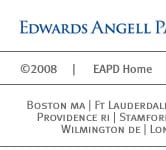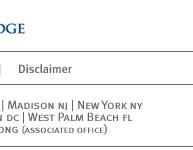
Dishonest Assistance: Stupidity Does Not Amount to Dishonesty
The test of dishonest assistance was judged again by the courts to be a high burden to surpass. In AG of Zambia v Meer Cere & Desai (A Firm) and Others1 a solicitor was held not to be liable as a constructive trustee for dishonest assistance or for conspiracy as he was held not to have known or suspected dishonesty on the part of the conspirator who had used the solicitor's account to launder misappropriated government monies.
The Facts
Mr Meer was instructed by a Mr Kabwe to act for a Zambian company named Access Financial Services Ltd (AFSL). Mr Meer was told that AFSL was providing various services for the Zambian Security and Intelligence Services (ZSIS) in the receipt and disbursement of Government monies. Mr Meer assumed that the Meer Care & Desai (MCD) client account was being used as a conduit for reasons of discretion in the conduct of the affairs of ZSIS. At no time did MCD provide legal services to AFSL; MCD operated simply as a banking facility. MCD were a firm of solicitors of two partners one of whom was Mr Meer.
Unfortunately, the reality was that between May 1996 and January 2003 over US$8million had been misappropriated from the Zambian government, paid into the client account of MCD and then transferred to a number of accounts for the private benefit of, amongst others, the former President of Zambia, Dr Chiluba.
As a result, the Government of Zambia sued MCD not only in conspiracy but also as a constructive trustee that had provided dishonest assistance to the wrongdoers.
Dishonest Assistance
Until the mid-90s most cases on dishonest assistance focussed on the issue of the accessory's knowledge of the wrongdoing. Indeed, the liability was thought to be based on 'knowing assistance' and some judges embarked upon elaborate analyses of the sort of knowledge that would found liability. For example Peter Gibson J in Baden & Others v Societe Generale [1993] 1 W.L.R. 509 identified five types of knowledge he considered might be relevant:
- actual knowledge;
- wilfully shutting one's eyes to the obvious ('Nelsonian' knowledge);
- wilfully and recklessly failing to make such inquiries as an honest and reasonable man would make;
- knowledge of circumstances which would indicate the facts to an honest and reasonable man; and
- knowledge of circumstances which would put an honest and reasonable man on inquiry.
However, the decision of the Privy Council in Royal Brunei Airlines Sdn Bhd v Tan [1995] 2 A.C. 378 established that dishonesty lay at the heart of this limb of liability as a constructive trustee. The focus of that decision and its successors such as Twinsectra v Yardley [2002] 2 A.C. 164 and Barlow Clowes v Eurotrust [2006] 1 W.L.R. 1476 was very much on defining the test of what constitutes dishonesty. In Barlow Clowes, Lord Hoffman stated that "a dishonest state of mind is a subjective mental state, the standard by which the law determines whether it is dishonest is objective. If by ordinary standards a defendant's mental state would be characterised as dishonest, it is irrelevant that the defendant judges by different standards".
The AG of Zambia case returned the spotlight to the issue of knowledge.
The Decision
The test accepted by the judge at first instance was that Mr Meer could not be held to be liable in constructive trust unless he knew (actually or on a 'Nelsonian' basis) that the money passing through MCD's client account was government money which was being, or had been, stolen and that the instructions which Mr Meer received and implemented were for the improper and dishonest application of those funds. Mr Justice Peter Smith found that he had such knowledge.
On appeal, the Court of Appeal confirmed that the judge at first instance had applied the correct test in determining the question of dishonest assistance. The Court of Appeal then had to consider the factors that led the judge at first instance to reach his conclusion that Mr Meer should be held liable.
In particular, Peter Smith J had relied on as a benchmark for honesty (and therefore dishonesty) what the "honest and competent solicitor" would do in the same circumstances. The Court of Appeal held that the "hypothetical comparator was not appropriate, because it assumes that Mr Meer was competent" per Lloyd LJ at [267]. In fact he had been "foolish, sometimes very foolish, and far from competent in his understanding, as well as in his application and observance, of relevant professional duties".
On this basis the Court of Appeal found that on the balance of probabilities, Mr Meer was not dishonest, that he did not know of, or suspect, dishonesty on the part of Mr Kabwe, and that therefore he should not be held liable for dishonest assistance or conspiracy.
Comment
Had the Government of Zambia been in a position to sue MCD for negligence, they would clearly have succeeded, but negligence is not dishonesty and the Government could not surmount this higher hurdle. The case is a salutary reminder that even though the test of dishonesty is objective, if a defendant simply does not know the relevant facts, however foolish that may be, it will be impossible to establish dishonesty.
Contacts
The information in this newsletter is for general guidance only and is not intended to be a substitute for specific legal advice. If you would like any further information please contact:
Colin Joseph
Partner, Commercial Litigation - London
t: +44 (0) 20 7556 4434
e: CJoseph@eapdlaw.com
Rhys Davies
Trainee - London
t: +44 (0) 20 7583 4055
e: RDavies@eapdlaw.com






